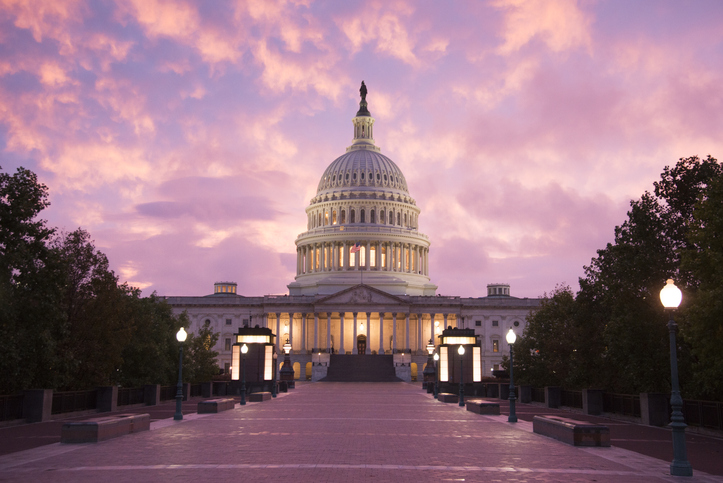
Robert F. Kennedy Jr., secretary of the U.S. Department of Health and Human Services, fielded questions from Congress on Wednesday relating to budget cuts, vaccines, Medicaid and other issues.
He testified before the House Committee on Appropriations in the morning and the Senate Health, Education, Labor and Pensions Committee in the afternoon to discuss the administration’s proposed budget. These appearances mark Kennedy’s first testimony before Congress since his confirmation hearings in late January.
Here are some key takeaways:
1. Vaccines
Kennedy faced numerous questions about his controversial views on vaccines. This includes from Rep. Mark Pocan (D-Wisconsin), who asked if he would vaccinate his kids today for measles. Kennedy said he “probably” would for measles, but then stated that his “opinions about vaccines are irrelevant.”
“I don’t think people should be taking medical advice from me,” he said, adding that he will lay out the pros and cons of vaccines. He also would not comment on if he would vaccinate his children for chicken pox or polio today.
Rep. Rosa DeLauro (D-Connecticut) said she is “horrified” that Kennedy will not encourage families to vaccinate their children for measles, chicken pox and polio.
“Vaccines are one of the foundations of public health,” she said. “Vaccines, yes, save lives, and the fact that the Secretary of Health and Human Services refuses to encourage children to be vaccinated is a tragedy.”
In the Senate hearing, Sen. Chris Murphy, (D-Connecticut) also took shots at Kennedy for his views on vaccines. Murphy argued that he did not follow through on promises he made during his confirmation hearing, including that he would not reduce funding appropriated by Congress for vaccination programs. He said Kennedy canceled $12 billion in grants to the states that are used to administer and track vaccines, to which Kennedy asked, “When did I do that?”
Murphy also pushed Kennedy on if he would recommend families to get their children vaccinated.
“I am not going to just tell people everything is safe and effective. If I know that there are issues, I need to respect people’s intelligence,” Kennedy responded.
2. HHS layoffs and cuts
During her opening comments, DeLauro, who is ranking member of the House Appropriations Committee, came out swinging on the administration’s cuts to HHS, NIH, CDC and FDA.
“With you at the helm, the Trump administration and Republicans in Congress are destroying the crown jewels of our health system: the National Institutes of Health, the Centers for Disease Control and Prevention and the Food and Drug Administration,” she said. “At the NIH, the world’s largest funder of life-saving biomedical research, you and Elon Musk have fired or driven out nearly 5,000 personnel, including some of the world’s most preeminent scientists.”
She added that Kennedy is “eliminating scores” of CDC prevention programs, such as for HIV, tobacco, and gun violence.
Sen. Susan Collins (R-Maine) also questioned HHS cuts, particularly relating to Alzheimer’s. She is the author of the BOLD Act, which educates providers on Alzheimer’s and promotes earlier diagnosis.
“I have worked very hard to make sure that HHS has the resources to carry out this law, which was just recently extended,” Collins said. “I’m concerned that the reductions in force of approximately 10,000 staff across the HHS will completely undermine this act.”
Kennedy said that he will work with Collins, and that Alzheimer’s runs in his family.
3. Medicaid cuts
Rep. Josh Harder (D-California) pressed Kennedy on the proposed Medicaid cuts, noting that it would leave 50,000 people in his community without health insurance.
“Why do you think that a community like mine doesn’t deserve access to that same basic health care provided by Medicaid that you benefited from?” Harder questioned, referring to addiction treatment that Kennedy received in the past.
“I don’t know if you understand this, or whether you’re just mouthing the Democratic talking points, the cuts to Medicaid are for fraud, waste and abuse,” Kennedy said.
Kennedy also argued that Medicaid is for poor children, mothers and the disabled, and that adults who are able-bodied and refuse to volunteer or get a job shouldn’t be eligible for Medicaid. Harder shot back that the vast majority of people on Medicaid are working, and that adding red tape will prevent people from accessing Medicaid.
Prior to the hearings, patient advocacy organizations echoed these comments on Medicaid work requirements.
Photo: MikeyLPT, Getty Images




